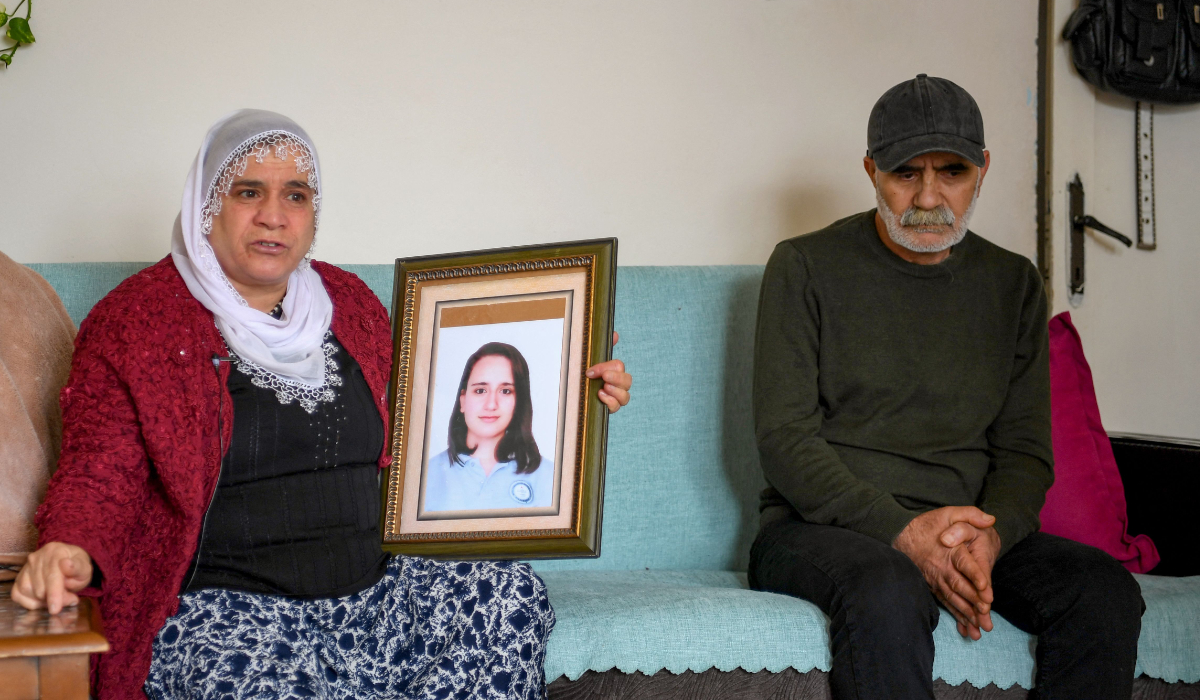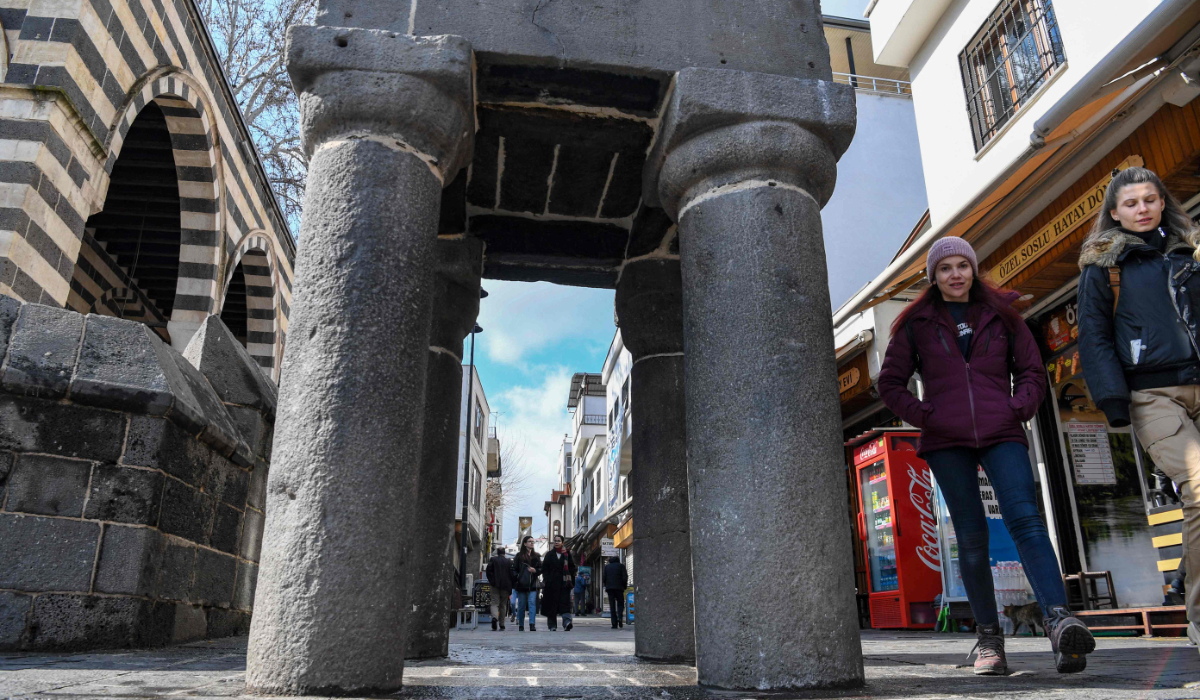AL-MUKALLA: Yemen’s Houthis launched two drones and one ballistic missile over the Red Sea on Monday, but all failed to reach their targets after being destroyed by the US Navy, in the latest round of Houthi attacks on ships in international commercial lanes.
US Central Command said the Houthis fired a drone from their controlled areas in Yemen at 3:41 p.m. on Monday, which was shot down by US Navy forces before reaching its intended objective.
Nearly three hours later, US military forces shot down one inbound anti-ship ballistic missile and a drone fired by the Houthis over the Red Sea, according to CENTCOM.

Yemen Freya Raddi, deputy head of the International Committee of the Red Cross delegation, boards the Houthi-seized Israel-linked cargo vessel Galaxy Leader, anchored off the coast of Yemen’s Hodeidah. The militia said their campaign is in solidarity with Palestinians amid the Gaza war. (AFP)
The intercepted drones and missile caused no harm to the US-led marine coalition or international commercial ships in the Red Sea.
This comes as the Houthis said on Monday that US and UK warplanes conducted an airstrike on Hodeidah airport in the western province of Hodeidah, the latest round of military actions by the two nations against Houthi targets in Yemeni territory under their control.
The Houthis have seized a commercial ship, sunk another and claimed to have fired hundreds of ballistic missiles and drones at more than 100 ships in the Red Sea, Bab Al-Mandab Strait, Gulf of Aden and recently in the Indian Ocean since the beginning of their campaign in November.
The ICRC has visited crew members who were detained following the seizure of the Galaxy Leader vessel in Yemen. During this humanitarian visit, ICRC passed on family messages to the crew members.
ICRC delegation
The Houthis claim that they only target ships linked to or sailing to Israel in order to pressure the latter to end its war in Gaza, and later attacked US and British vessels after those countries launched strikes against Yemen.
On Monday, a Yemeni government official told Arab News that a team of UN experts who visited the Belize-flagged and Lebanese-operated MV Rubymar that sank in the Red Sea after being hit by Houthi missiles in February suggested that it is impossible to retrieve the ship and bring it to shore or remove its cargo of 22,000 tonnes of ammonium phosphate-sulfate NPS fertilizer, disappointing Yemeni and international environmentalists who have long warned of an ecological disaster in the Red Sea.
The Houthis on Sunday allowed a team from the International Committee of the Red Cross and a group of journalists to visit the seized Galaxy Leader ship and its 25 crew members off the coast of Hodeidah.
The ship was taken by the Houthis in November, during the early stages of their ship attacks.
“The ICRC has visited crew members who were detained following the seizure of the Galaxy Leader vessel in Yemen. During this humanitarian visit, ICRC passed on family messages to the crew members,” the ICRC delegation in Yemen told Arab News.
Meanwhile, Amnesty International has urged the Houthis to free a Yemeni teacher who has been held in a notorious Houthi prison center for over six months.
The international rights group said in a petition addressed to the militia’s chief negotiator, Mohammed Abdul Sallam, that the Houthis abducted Moujib Al-Mikhlafi, a middle-aged educationist and human rights trainer, in October last year while he was traveling to the province of Ibb to give a teacher training course.
The Houthis stormed his home and stole his electronics and paperwork, abducted him on the same day, held him for 21 days, and then threw him into a security and intelligence jail in Sanaa, where he was tortured and refused treatment, according to the group.
“We urge the Houthi de facto authorities to immediately release Moujib Al-Mikhlafi. Pending his release, the authorities must ensure he is protected from torture and other ill-treatment and that he has access to legal representation, regular family contact, and adequate healthcare,” Amnesty said, adding that his family said that his health has worsened in recent months and that he requires medical care for diabetes and high blood pressure.
The Houthis have not put Al-Mikhlafi on trial or explained why they are keeping him.
































